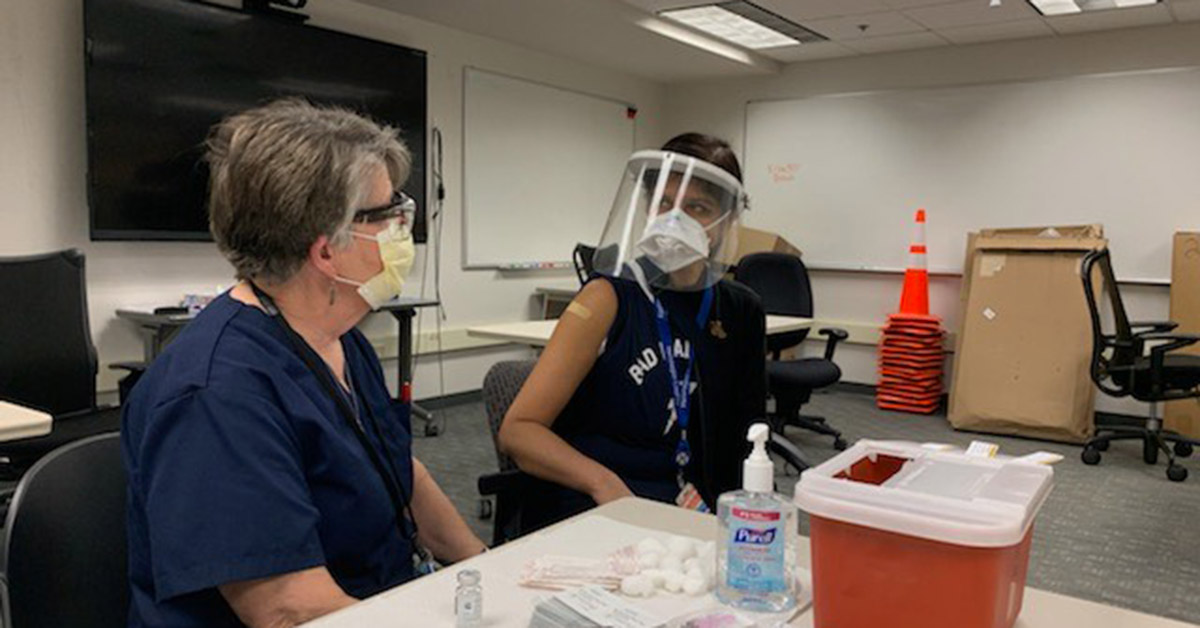Vaccine Operations Coordination, COVID-19 Response
Hennepin County
Minneapolis, MN
“I think the pandemic is inspiring in that we are all working together to solve this problem right now.”

In what ways are you working on or responding to the COVID-19 outbreak?
Currently, I am helping with vaccine dissemination through Hennepin County Public Health. I help plan and lead the effort to get school healthcare staff and K-12 educators within Hennepin County vaccinated through the Vaccine Operations Coordination area. I also work at Hennepin County’s vaccine points of distribution; once we have identified target groups, we administer vaccines at locations that serve these populations. As part of the planning team, I will continue to help plan this effort for Hennepin County Public Health as we move through the vaccine phases identified by the Minnesota Department of Health (MDH).
How has your public health education prepared you for this situation?
My education and experiential learning opportunities at the University of Minnesota School of Public Health (SPH) was integral in preparing me for the work I do now in COVID-19 response. Many of the planning processes and the framework we use for emergency and disaster response was discussed in courses I took as a student at SPH. One experience I had as a student that prepared me particularly well was during my field experience when I had the opportunity to work with the Minnesota Department of Health (MDH) to help create a pilot Behavioral Health Medical Reserve Corps. I’m proud to say that the group still functions as a team and is deployed when requested.
For my master’s project, I created a state-to-state mutual aid request for the Emergency Management Assistance Compact (EMAC), to deploy a specialized behavioral health team when requested nationwide.
What are your thoughts about the current state of public health in relation to COVID-19?
COVID-19 guidance is changing daily and it’s important for public health professionals to not only help stop the spread of misinformation by providing accurate sources and guidance, but to also lean on “Trusted Messengers” in the community to alleviate ideas within communities that may deter access to the vaccine and testing. Trusted Messengers are individuals from diverse communities who apply for and become messengers on behalf of their own communities through MDH. They help educate their communities about COVID testing, vaccines and other important public health information.
How has COVID-19 impacted your life (good and bad)?
Although I greatly miss my family members who are scattered across the United States, Canada, and Trinidad, West Indies, I have hope we can get through this difficult time. I worry about my husband who is a frontline worker and out in the field five days per week. He has yet to receive his vaccine. My children also attend schools and we have a child between homes which makes our “bubble” very large. We try to be as safe as possible, but the idea of COVID is always on our mind.
Some good things that have happened include being able to spend more time with my children and family. I have had a “technology brain boost” — as I like to call it — by being forced to learn about new applications like Zoom and Microsoft Teams so I can communicate with others. I have spent more time outside and developed a mad love for state parks.
I have lost a few peers, acquaintances, and a friend to COVID. That has been tough to navigate because this virus is so insidious in terms of spread and has affected people in my life I never thought it would.
Do you think this pandemic will inspire people to think about public health differently? How so?
I think the pandemic is inspiring in that we are all working together to solve this problem right now. My hope is that seeing the hard work that public health professionals are doing to end the pandemic will inspire people to become even more interested in public health. The work of public health is very gratifying because we are working for the greater good. I’m grateful for the individuals who are helping by wearing masks, social distancing, washing their hands frequently, and following the guidance that will help keep them and their communities safe.

